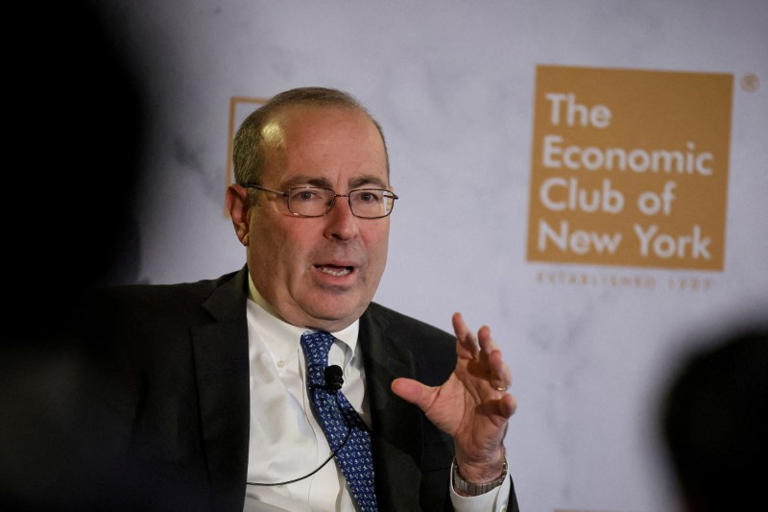In a climate of economic uncertainty, Federal Reserve policymakers are increasingly leaning towards the possibility of interest rate cuts. This shift in perspective comes as they observe signs that inflation is cooling, though the timing and scale of such cuts will hinge on forthcoming economic data rather than immediate stock market reactions.
Economic Context and Recent Developments
The Federal Reserve’s recent discussions reflect a growing confidence that inflationary pressures are diminishing, which could set the stage for future interest rate reductions. This optimism follows a tumultuous period for the financial markets. Last week’s release of a higher-than-expected U.S. unemployment rate led to significant declines in global stock markets, heightening concerns about a potential economic slowdown. This sell-off was compounded by fears that the Federal Reserve might need to adopt a more aggressive stance to combat a recession. However, U.S. equity markets have since partially rebounded, and major indices continue to show gains from the start of the year.
Thomas Barkin, President of the Richmond Federal Reserve Bank, noted that despite recent market declines, there is no indication of a monumental shift in the equity markets. Speaking at a virtual event hosted by the National Association for Business Economics, Barkin emphasized that the broader economic indicators suggest inflation is stabilizing. He remarked, “It’s hard to make the case that something has just happened that is monumental on the equity side.” He expressed cautious optimism based on discussions with business leaders, suggesting that the cooling labor market is attributed to a slowdown in hiring rather than a significant rise in layoffs. Barkin conveyed that there is time to assess whether the economy is transitioning smoothly to a normalized state, which would allow for gradual rate adjustments, or if more aggressive measures are needed.
Jeff Schmid, President of the Kansas City Federal Reserve Bank, also addressed the recent market turbulence in his remarks prepared for the Kansas Bankers Association’s annual meeting. Schmid acknowledged the role of financial conditions in providing insights into economic trajectories, but stressed that the Fed must remain focused on its dual mandate: achieving full employment and maintaining price stability. He pointed to recent data showing inflation around 2.5% as encouraging, bolstering confidence that the Fed is on track to meet its 2% inflation target. Schmid described the economy as resilient, with strong consumer demand and a labor market that, while cooling, remains healthy. He suggested that current policy settings are not excessively restrictive and indicated a cautious approach to policy adjustments.
Austan Goolsbee, President of the Chicago Federal Reserve Bank, reiterated concerns about the tightness of current monetary policy. He argued that maintaining elevated borrowing costs, even as inflation declines, could negatively impact the labor market. In an interview, Goolsbee emphasized that the Fed’s decisions will be driven by economic fundamentals rather than stock market performance or political considerations. “The Fed’s out of the election business. The Fed is in the economic business,” Goolsbee stated. He underscored that the Fed’s primary objectives are to maximize employment and stabilize prices, rather than reacting to short-term market fluctuations or political events.
Implications for Future Monetary Policy
The Federal Reserve’s potential shift towards interest rate cuts reflects a broader strategy to balance inflation control with economic growth. Policymakers are closely monitoring economic indicators, including inflation trends and employment data, to inform their decisions. While stock market volatility and geopolitical events can influence market perceptions, the Fed’s approach will remain grounded in data-driven analysis.
As the economic situation evolves, the Fed’s actions will be pivotal in shaping financial markets and economic stability. Investors, businesses, and policymakers will be watching closely for any indications of changes in monetary policy and the impact on broader economic conditions.
For ongoing updates and in-depth analysis of Federal Reserve policy and its implications for the economy, stay informed through reputable financial news sources and expert commentary.
